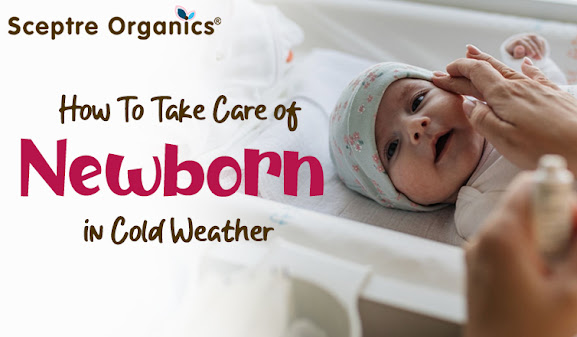12 Tips To Keep Baby Healthy Through Weather Changes
Changes in the weather bring challenges in the form of allergies and infections that affect your baby's health. Follow these safety precautions to keep your child safe throughout the year when the weather changes.
The 3 major weather changes are - Summer, Rainy and Winter.
Keep your baby safe in the summer by following these steps
So sweaty, dehydrated and in unbearable heat, you cannot sit without changing a few habits.
- Manage the wardrobe
As a change of season approaches, we pack our last seasonal clothes and fill our wardrobe with the clothes we will be wearing this season.
Be extra careful when choosing your baby's clothes. They should be loose-fitting, comfortable and made of light cotton.
- Outdoor precautions for the baby
Sun protection is necessary.
There are plenty of safe sun protection formulas for babies. You should keep your baby away from direct sunlight and sweat, especially during the middle of the day when the sun is scorching, use Baby Refreshing Wipes.
In the evening, make sure your baby is wearing anti-mosquito repellents.
- Indoor precautions for the baby
While bathing prefers lukewarm water over a normal cold or too-warm water.
If your baby is breastfeeding, make sure you breastfeed frequently to keep the baby hydrated. Your child must be hydrated throughout the day with water. A moderate temperature at home is preferable, one that is neither too cold nor too hot. Put curtains to avoid direct heat at home.
Try feeding your baby fibre and salads so that they do not feel lousy or dehydrated. Keep checking your baby's nappies several times, and clean them with Alcohol-Free Refreshing Wipes For Baby.
Ensure your baby is extra safe in the rainy season by following these steps
Monsoon season brings various illnesses, such as diarrhoea and mosquito-borne illnesses, malaria, and dengue. Here are some baby health tips for this weather.
- Manage the wardrobe
You should dress your baby in loose, breathable cotton fabric clothing that covers his whole body and keeps mosquitoes at bay.
Keep your baby's clothes dry as damp clothes can lead to fungal infections.
- Outdoor precautions for the baby
Using insect repellent is safe for children; however, applying it to a child’s mouth, eyes, hands, or irritated skin or cuts is not recommended.
Babies who have just started walking should wear water-resistant shoes that don’t slip.
Make sure there is no stagnant water inside the house or around your house to avoid mosquitoes breeding.
- Indoor precautions for the baby
Wash your toddler's hands frequently. Use a mosquito net to prevent mosquito bites while your baby is sleeping.
Your baby's diapers should be changed frequently if it poos a lot or has a diaper rash.
Keep your home and surroundings dry and clean to prevent mould and mosquito breeding.
Use mesh on the windows or shut the windows and doors in the evening to keep mosquitoes out.
All family members should practice proper hygiene.
- Other safety measures
You should always give your baby boiled and cooled water to drink.
If your baby is eating solid foods, offer clean and freshly prepared meals.
Avoid feeding from bottles that are not regularly washed as they are contaminated easily and spread infection.
clean your toddler's eatables with warm water.
Breastfeeding is recommended, as seasonal diarrhoea may be worsened by not breastfeeding.
Ensure your baby's safety throughout the winter season by following these steps
The winter months aren't easy to handle, not even for adults, so if you're handling a baby, be more cautious.
- Manage the wardrobe
As the seasons change, temperatures can vary a lot throughout the day.
It could start out hot or cold and then cool down or get warmer depending on the time of day.
Dress your baby in layers so that you can add or remove layers to keep your baby comfortable throughout the day.
Keeping them warm is the ulterior motive.
- Outdoor precautions for the baby
They need to limit their time spent out and playing, especially early in the morning or until late at night.
Wear woollen hats, warm boots and socks, and gloves or mittens to keep warm. Use a woolly hat that covers your baby’s ears and cheeks as an extra precaution.
Remove the hat and extra clothing as soon as you get into a warm car or go back indoors clean their exposed parts with Extra Clean Baby Wipes
- Indoor precautions for the baby
Make sure they eat plenty of fats, especially dry fruits to keep them warm.
Give your baby an oil massage after bathing in the winter.
Use thin, warm blankets while they sleep.
Make them wear warm clothes and thermals so their skin doesn't get rashes or irritated by wool fabrics.
- Other safety measures
Babies are more prone to catch a cold as virus exposure occurs more commonly in the winter. Clean your hands with water and soap before handling your babies to prevent the spread of germs or use Wet Wipes For Hands And Face.
Source:- https://sceptreorganics.com/12-tips-to-keep-baby-healthy-through-weather-changes/




Comments
Post a Comment